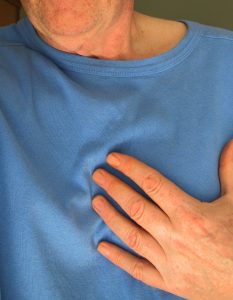It is often heard that the risk of heart attacks increases During The Winter Season. There is no exact reason why this happens. However, some experts believe that one of the reasons for the increase in heart attacks is our physiology and the drop in temperature that affects the heart. Many studies have also shown that the risk of stroke, heart failure, heart problems, and other problems increases in winter. Let us try to know why Heart Diseases Problems increase so much in winter?
In winter, there is increased activity of the body’s sympathetic nervous system, which constricts the blood vessels. It is called vasoconstriction. When blood vessels become constricted, blood flow is restricted or reduced. When this happens, blood pressure levels rise, and the heart works harder to transport blood to different body parts. Because of this, heart-related problems occur because it has to work more in winter. During the colder months, it becomes difficult for the body to retain heat and causes hypothermia, damaging the heart’s blood vessels. Therefore, anyone who has any heart-related disease needs to take special precautions in winter. Let us see how we can take care of ourselves during this time.
Heart diseases
The risk of the heart can occur at any age, and its risk is very high, and it requires indeterminate care. The label of pollution has increased significantly over the century, and there is a lot of discussion going on because of reducing it. Because of the increasing air pollution, many diseases are happening. Pollution may also play a role in increasing the risk of a heart attack. In such a situation, it becomes more important to stay on the right path of health and keeps heart diseases away. To maintain the health of your heart, you have to adopt some methods in winter, which are as follows.
Be active
Often people do not dare to go out in winter. But to protect yourself from diseases, it is also necessary to keep yourself fit. If you don’t want to go outside, you’ll need to find other ways to exercise. Physical exercise and activity are very important to increase immunity. If you want, you can also do workouts inside the house like Aerobic exercise, yoga, and meditation, etc. You can do a maximum of 30 minutes of workout because too much exercise can be harmful to you. It will keep you on body heat and will also help keep you fit. It will also prove helpful in fighting against heart diseases.
Wear proper clothes in winter.
Often people do not wear proper clothes in the early days of winter, increasing their chances of getting sick. But you have to know that the changing weather affects the whole body. Our body also has to change itself according to the changing seasons; it takes some time. For this, the body’s immune system should also be good. Therefore, wear the right clothes according to the weather; for example, wear clothes that cover the body well when the cold starts. If you want to go out for any reason, you must wear a mask so that cold air does not enter the body through direct breath.
Pay attention to your eating habits.
Most people’s appetite increases in winter. In winter, people mostly like to eat hot food, and hot food is very tasty. Also, during this season, people start eating more fried foods, such as hotcakes, many of which are loaded with cholesterol and fat. People have to pay attention to consuming only one to two in a week; otherwise, their health may suffer. Take care of your eating habits, eat healthy food as much as possible.
Reduce the risk of diseases.
To reduce the risk of heart-related diseases, attention should also be paid to other diseases. Diabetes, an increased blood pressure level, can also be the reason for a sudden heart attack. The problem of acidity should also not be taken lightly by heart patients. It would be best if you also took care of all these things; otherwise, you will increase the risk of heart-related diseases.
Get timely tests done to reduce heart-related diseases
Regular check-ups must be done to Reduce The Risk Of Heart Attack and other diseases related to it. Symptoms should never be ignored. If symptoms and signs appear, a doctor should be contacted immediately. Such symptoms include,
- heaviness in the chest,
- Sweating,
- shoulder pain,
- gum pain,
- dizziness or nausea